Dispose of lab and office waste using the procedures outlined below. Please contact mnbuild@uw.edu if assistance is needed or if there are questions about how to dispose of items not mentioned below.
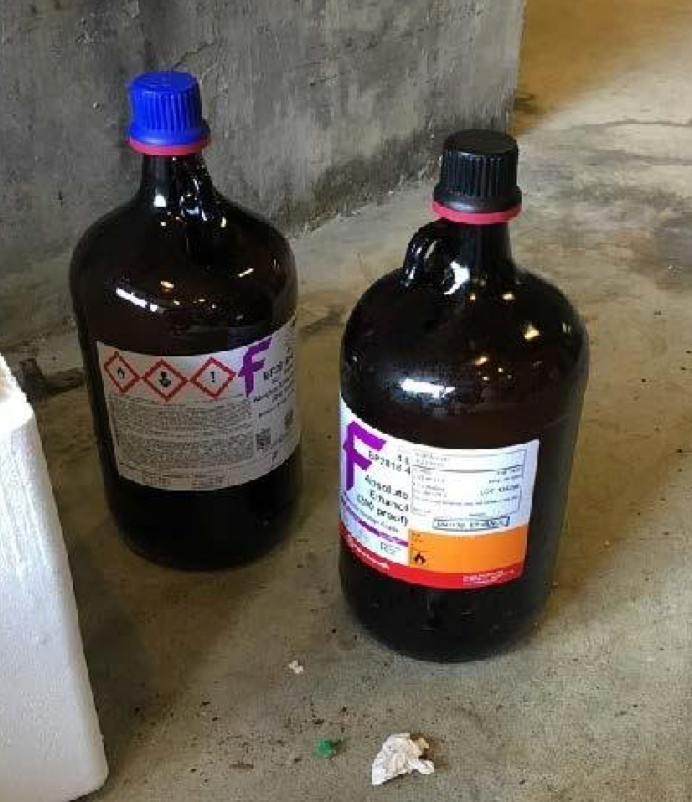
Chemical Waste
Dispose of in accordance with EH&S procedures (Chemical Waste Disposal). Remember to update MyChem inventory as appropriate.
Empty Chemical Containers
See Chapter 3.E.2 of the Lab Safety Manual for proper procedure. Do NOT place unprepared bottles on the loading dock.
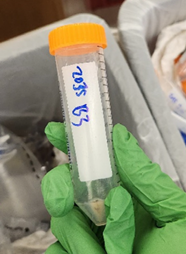
Non-Hazardous bottles/vials
Non-hazardous bottles/vials can be tossed into the garbage as long as it’s been triple rinsed, emptied and the cap must be removed per EH&S.
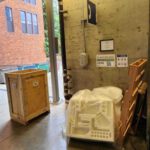
Styrofoam (Including Thermal Shipping Blocks)
Do NOT leave Thermal Shipping Blocks in the mailroom or let it build up in the lab. It takes up quite a bit of space. Remove ALL labels/tape then bag the Styrofoam and place them on the loading dock in the designated location next to the phone.
Do NOT place the un-bagged Styrofoam or Styrofoam with affixed labels on the loading dock. Styrofoam needs to be separated by type. (e.g. separate packing peanuts, rigid Styrofoam (thermal shipping blocks), flexible Styrofoam.) Please refer to the Styrofoam guide for more information.
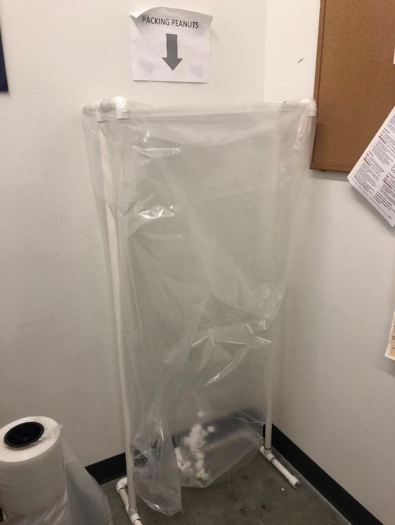
Packing Peanuts
Empty into the packing peanut recycle bag in the MolES/NanoES mail room, G31.
If the bag is full, please tie it up and place the bag near the Styrofoam recycling pickup on the MolES/NanoES loading dock next to the phone.
Plastic Film (Packing Material, Cling Film, Etc.)
Plastic that stretches easily with your thumb can be placed in the “plastic film” bin at the back of the loading dock (air-filled packing inserts should be deflated first). Plastic must be dry and clean.
Crinkled/rigid plastic film, #7 plastic, mylar, foil, and bubble mailers are not recyclable. Please See Plastic Film Recycling Guide.
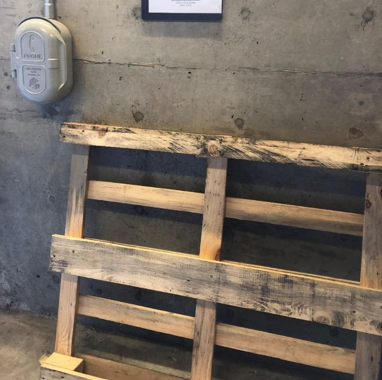
Pallets and other Lumber
Lean against the wall next to the phone on the loading dock. For large quantities, notify MNBuild@uw.edu in advance.

Cardboard Boxes
Flatten boxes and place them in the green toters or in the “cardboard only” dumpster by the loading dock.
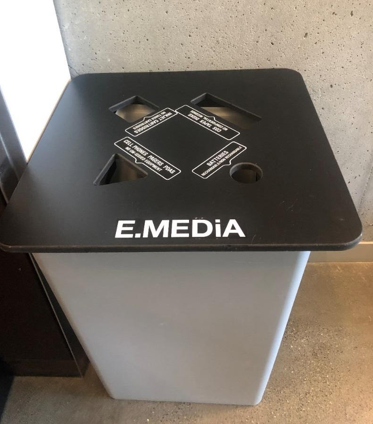
Batteries, Miscellaneous Electronics and Digital Media
Small Items can be placed in the E-Media Waste bin on the ground floor lobby near Stevens Way Entrance. Ends of batteries need to be taped up. No motor batteries (motorcycle, vehicle, boats, etc.)
Contact MNBuild@uw.edu about disposing of larger items.
Gel Packs
Dispose in the garbage bin. Gel packs are not recyclable.
Light Bulbs/Lamps
- Broken Incandescent Light Bulbs/Lamps – Dispose of as lab glass.
- Broken Fluorescent Bulbs or Hazardous Light Bulbs – Dispose of as hazardous waste. Please see the link for more information. Broken Fluorescent Bulbs Clean up and disposal. Hazardous Flow Chart.
Used printer cartridges, drums, etc.
Toner Cartridge collection is located at Architecture Hall, G-42 or Gerberding Hall B-54.
Biohazardous Waste
- Option 1: Sterilize in MolES 4th floor autoclave. Users must complete autoclave training before using autoclave. Please contact MNBuild@uw.edu for assistance.
- Option 2: Properly transfer to an autoclave cost center for a fee to autoclave and dispose of. Closest autoclave cost center will be Laboratory Services in Health Sciences Building, T-Wing, T-276. Disposal is included in the fee.
- Option 3: Ship out for disposal using UW’s hazardous waste disposal vendor (Trilogy MedWaste). Must open a Trilogy Medwaste account to ship through an offsite vendor. Please contact them to set up a routine pick-up if needed.
Lab Glass and Sharps
Should be disposed of in accordance with the image below. All items requires a label with PI’s name and room number.
- Lab Glass Boxes – Custodial Services will only dispose of boxes less than 2’ x 2’ in size and less than 25 lbs. in weight. Boxes must be placed next to a regular trash can.
- Sharps – Sharps containers must be autoclaved and should NEVER be placed on the loading dock or tossed in the regular trash. (See attached Lab Glass and Sharps poster for clarification on what qualifies as what.) Please drop off sharps waste at Health Science Building, T-276 by loading materials into plastic trays on the processing cart, filling up the lower shelves of the cart first. Each filled plastic tray is considered one load. They can process 9 loads of biohazardous waste at a time.
For more information on Sharps and Lab glass please visit: http://www.ehs.washington.edu/biological/sharps-and-laboratory-glass
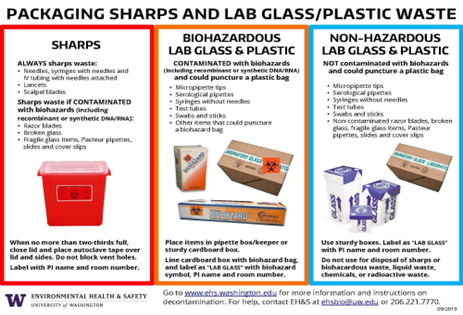
Please contact MNBuild@uw.edu with questions or suggestions regarding ways to improve sustainability at MolES/NanoES (or at UW in general).